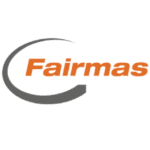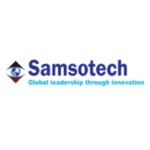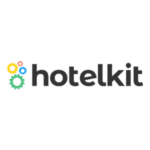 Historically Word-of-Mouth (WOM) has been important for tourism and hospitality, because we know that customers very rarely make decisions in isolation. Customers select sources of information that they perceive as useful, trustworthy, insightful and easily accessible, which will help them make decisions. So, as the hospitality industry emerges from the pandemic, WOM will be more important than ever.
Historically Word-of-Mouth (WOM) has been important for tourism and hospitality, because we know that customers very rarely make decisions in isolation. Customers select sources of information that they perceive as useful, trustworthy, insightful and easily accessible, which will help them make decisions. So, as the hospitality industry emerges from the pandemic, WOM will be more important than ever.
What is Word-of-Mouth?
At its core, WOM is an informal exchange of information between people that is non-commercial in nature; in reality, it is so much more. It has always been considered the most powerful form of influence, because it provides a balance of information and opinion, within a known context that is expressed in a setting, which provides the flexibility to ‘tailor make’ the message. However, WOM has traditionally been considered in a simplistic view of ‘positive’ or ‘negative’ WOM. This sells WOM short as it overlooks the different types of WOM and the nature of the exchange.
3 main types of Word-of-Mouth
There are three main types of WOM. The first main form of WOM is discussion of brand name. This relates directly to a brand names raised in discussion for example multi-national tourism and hospitality products, such as hotel chains, for example Hyatt, Sofitel, Accor.
Then there is informational WOM, which is usually descriptive information that may include attribute details. In the hotel management context this might encompass information, such as pricing, opening hours, parking, food availability, directions, weather, access and various other details.
Finally, there is evaluative WOM, where opinion is provided, and that opinion is usually based on personal experience. This is particularly important for hospitality as the trusted opinion of another person often acts as a proxy for a guest who lacks experience or knowledge during the decision-making process.
It is this last type that has been the focus of marketers’ attention, and this might explain the limited view of WOM as being ‘positive’ or ‘negative’. In reality, one (or a combination) of these forms will be used when customers engage in a WOM exchange. Consequently, WOM delivers discussion of brand, information and opinion (both positive and negative messages) … often within a single exchange. Given the complex nature of hospitality experiences, this is fundamental to understanding the mosaic of WOM.
Why hotels care about Word-of-Mouth
Whether WOM can be ‘managed’has been argued for some time, but the importance of this debate should be redirected. The focus, instead, needs to shift to how WOM can be used to provide accurate and trusted information.
WOM has long been considered to be the most utilized information source for independent travelers, and this holds true now more than ever. In context of a COVID-19 world people considering travelling are being bombarded with information from a wider range of sources: scientific, public health, business, government, marketing and the list goes on. WOM has the capacity to cut through the myriad of messages with interpersonal, tailored communications between individuals.
How hoteliers can move from influencers to informers
Information accuracy, currency and trust are all critical factors in rebuilding the hotel industry and regaining confidence and, yet again, WOM rises to the top but with a different focus. Hotels need to shift their focus from ‘influencers’ to ‘informers’.
There is a temptation to pursue ‘influencers’ as a channel for online communication and propagation of positive messages, particularly as part of a recovery strategy. There a two key challenges to this; firstly, the well-known commercial nature of the ‘influencer’ undermines the credibility that is central to WOM. Secondly, the ‘influencer’ is premised on their ‘likeability’ rather than their ‘similarity’ to the person receiving the message, and this ‘like me or like me’ consideration is important. That is not to say that ‘influencers’ should not be used, but it is important to distinguish them as being separate to WOM.
Instead, hoteliers should shift their focus to the other forms of WOM, discussion of a brand name and informational WOM. Identifying key messages about their property and ensuring that those key messages are easily and clearly recounted. Associating the brand with a key message, such as ‘open for business as (un)usual’, ‘accommodating change’, ‘managing distance closely’ provides a context for information to be recalled and shared.
Like its better-known cousin, evaluative WOM, debate surrounds the degree to which any form of WOM can be managed, but there does seem to be a level of agreement that it can be fostered. By focusing on associating brand with a key message that unlocks the information that guests need to make a decision might be a more useful way of thinking about the role of WOM in a post pandemic recovery.
About the author




























